Introduction
Gelid Solutions Ltd. is a Hong Kong based company with Swiss Management that was founded in 2008 by Gebhard Scherrer and VC Tran. Both have worked in the PC Cooling industry for a number of years and successfully built up an IT company with their expertise. Gelid designs and manufactures thermal solutions, CPU coolers, fans, and other computer hardware for both gamers and silent enthusiasts. The CPU Coolers are not yet finished but are coming soon.
The fans and coolers are devided in two categories: Gamers and Silent. Also Gelid produces some accessories like a very handy PWM Y Cable. Today I will be reviewing fans from the Silent series. In the 80 mm size it will be the Silent 8. In the 120 mm size it will be the Silent 12TC and the Silent 12PWM.
The English word "gelid" is derived from the Latin word “gelidus” (extremely cold, icy).
Package
The fans come with four rubber fan mounts and a Gelid sticker. There are no old-fashioned fan screws. In my opinion this is no problem when you're trying to build a silent PC.
The Fans
Silent 8
Specification
Air Flow (CFM):20.72
Bearing:Hydro Dynamic Bearing
Cable Length (mm):500
Connector:3 Pin Molex
Current (A):0.08
Dimensions (mm):80 x 80 x 25
Fan Speed (RPM):1600
INCLUDED:4 Rubber Fan Mounts
Noise Level (dBA):18
Safety Approvals:CE, RoHS Compliant
Static Pressure (mmAq):1.05
Voltage (V):12
Warranty (years):5
Weight (G):55
Silent 12TC
Specification
Air Flow (CFM):58
Bearing:Hydro Dynamic Bearing
Cable Length (mm):500
Connector:3 Pin Molex
Current (A):0.18
Dimension (mm):120 x 120 x 25
Fan Speed (RPM):750 (22C) - 1500 (42C)
INCLUDED:4 Rubber Fan Mounts
Noise Level (dBA):12-25.5
Safety Approvals:CE, RoHS Compliant
Sensor Cable Length (mm)300
Static Pressure (mmAq):1.6
Voltage (V):12
Warranty (years):5
Weight (g):130
Silent 12 PWM
Specification
Air Flow (CFM):58
Bearing:Hydro Dynamic Bearing
Cable Length (mm):500
Connector:4 Pin Molex
Current (A):0.18
Dimension (mm):120 x 120 x 25
Fan Speed (RPM):750 – 1500
INCLUDED:4 Rubber Fan Mounts
Noise Level (dBA):12 - 25.5
Safety Approvals:CE, RoHS Compliant
Static Pressure (mmAq):1.6
Voltage (V):12
Warranty (years):5
Weight (g):130
The advantage of the PWM fan is that it can start and run at lower speeds than a fan with voltage control. Especially in silent PC’s with newer motherboards like the one used in this test this is a big advantage. More on this later in the review.
Test setup
The fans will be tested with the following test setup
Antec Performance One P182
Asus P5Q-E
Intel E5200 (@3.6GHz)
Team 2GB PC6400 DDR2
Scythe Infinity SCINF-1000
Asus 8600GT (passive)
Enermax MODU82+ 425
Samsung F1 1GB (in Silentmaxx HD Silencer)
As I don't have a sound level meter I will try to give an impression on the produced sound by comparing the fans with a few popular fans on the market:
80 mm
Nexus Real Silent Fan
120 mm
Nexus Real Silent Fan
Noctua NF-S12-1200
SY1225SL12M (Standard fan on the Scythe Infinity)
All fans are tested on 5 Volt and 12 Volt
Results
80 mm
The Gelid and Nexus fan have about the same sound charesteristic (humming sound). On both 5 and 12 Volt the Gelid is slightly quieter. Both fans vibrate a little and therefore it's wise to use rubber fan mounts as delivered with the Gelid (and also with the Nexus).
120 mm
The sound level of the TC and PWM fan is identical, as well on low as high speeds. Therefore I will be talking about 'the' Gelid fan in the next bit.
On 5 Volt the Noctua fan is the quietest of the four fans. Just behind this comes the Gelid fan, then the Scythe and then the Nexus. There is a big difference in sound charasteristic however. The Gelid creates a ticking noise. This is also (less) the case in the Scythe and Noctua fans. However, not as much as in the Gelid. How irritating is this? As long as you attach the fan not directly to the heatsink/case there is no problem. When I used rubbers to attach the fan, the ticking was almost inaudible. When the case was closed it was completely inaudible. The Nexus doesn't produce the clicking noise but has a slight humming sound (the same as with the 80 mm fans)
On 12 Volt the results change. The ticking sound on the Nexus, Gelid and Noctua disappear, but the humming goes up. Now the Noctua is again the most silent fan, followed by the Nexus and Gelid fans which are clearly audible. On 12 Volts the Scythe is the loudest of the bunch.
The PWM an TC features
As stated before the PWM function has the advantage of letting the fan spin at low speeds without the risk of stopping the fan. This function works very well on the Asus board used in this test. I tried using Speedfan to control the fan speed of the voltage controlled fan. This wouldn't work however, as I have noticed with other newer boards. The only way to control the speed is with a hardware fan controller. The speed is in that case of course not temperature controlled by the motherboard. The fan speed is controlled very well by the Asus motherboard and speeds up when the CPU is stressed. Because the E5200 CPU stays very cool the speedup is limitid. Another advantage of the Gelid fan is that the lowest speed is not 'too low'. I used to have a Scythe PWM fan that spinned just a little bit too slow resulting in a CPU Fan error.... This is fortunately not the case with the Gelid.
The TC function on the Gelid 12TC works very well. The minimum fan speed is at 22 degrees Celsius and the maximum at 42 degrees. The sensor is very responsive. When holding the sensor between your fingers the fan speeds up instantly. In my opinion this fan is very well suited as outtake fan.
The best bit...
The Gelid fans come at very competitive prices. The manufacturer suggested retail price of the Silent 8 is € 3,10 ($ 4,15). For the Silent 12PWM this is € 7,00 ($ 10,50) and for the Silent 12TC this is € 7,20 ($ 10,80) Especially when compared to the Noctua (in The Netherlands available for € 19,00) this is a huge advantage. At this moment the availability of the fans is a problem. In The Netherlands they are not yet for sale. At this price I hope/expect this will change soon.
Conclusion
For a new player on the market Gelid delivers a solid product. Gelid promises low noise and surely delivers. The Silent 8 has about the same sound characteristic as the Nexus, but is quieter. The ticking produced by the Silent 12TC/PWM is no problem when the fan is installed with the included rubber fan mounts and inaudible in a closed case. The PWM function works very well with on the used motherboards (not too slow). The TC Fan is very well suited as outtake fan. The price of the fans is the best part. Compared to the competitors the fans are outright cheap.
Pros
- Very quiet at low speeds
- Shipped with rubber fan mounts
- PWM and TC function work well
- Price (!)
Cons
- Not so quiet at high speeds
- Availability
Many thanks to VC Tran from Gelid for providing me the fans for review!




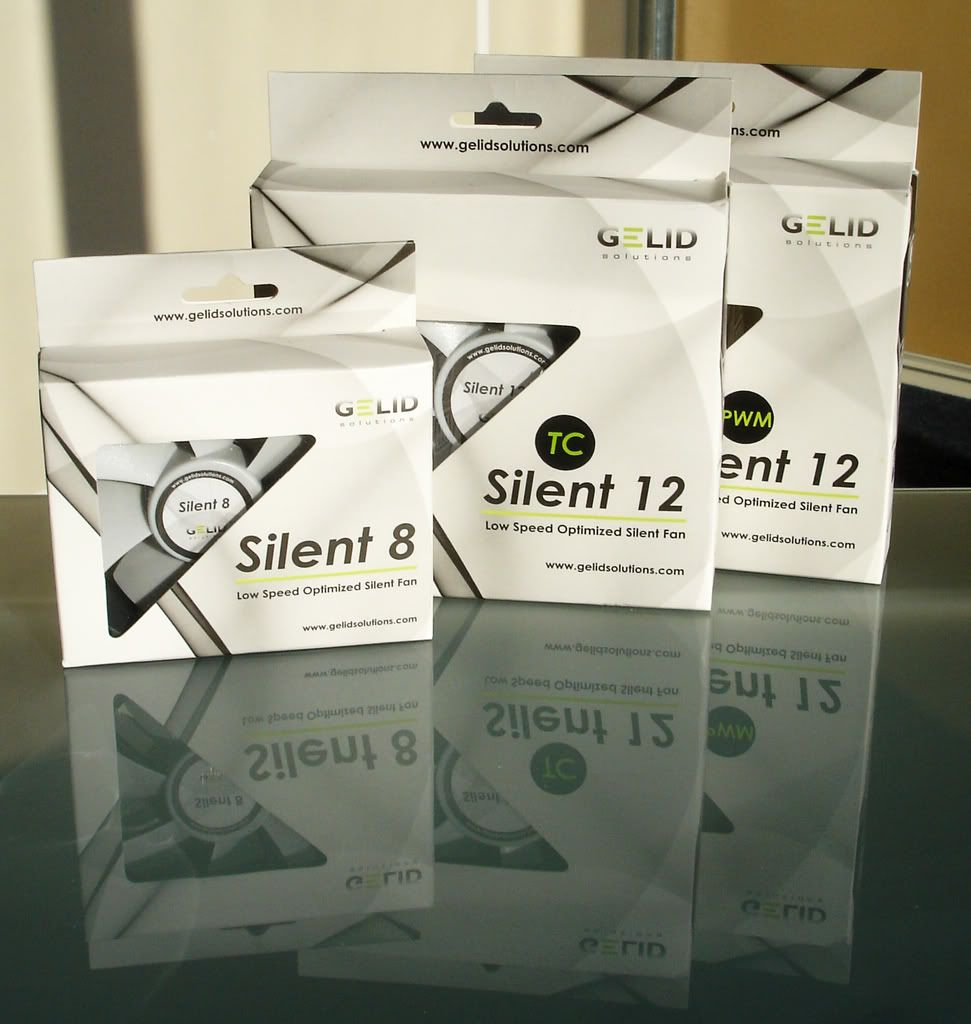
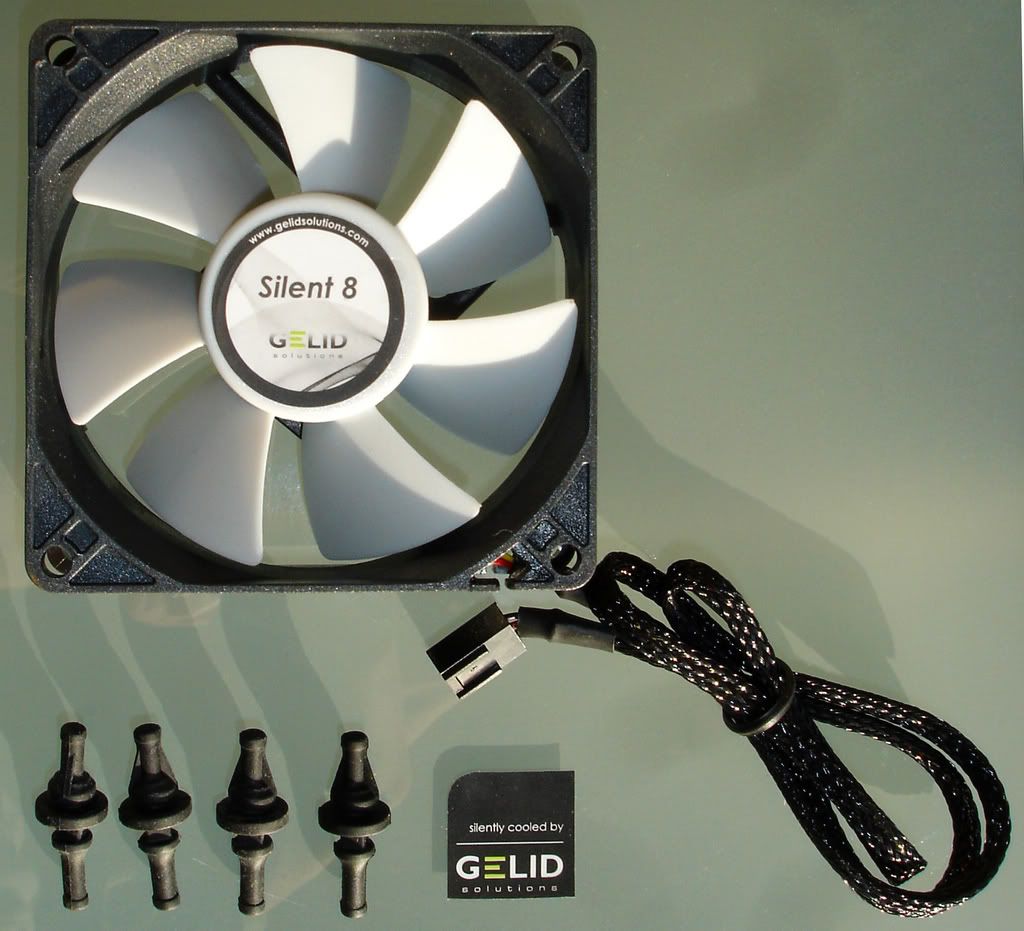
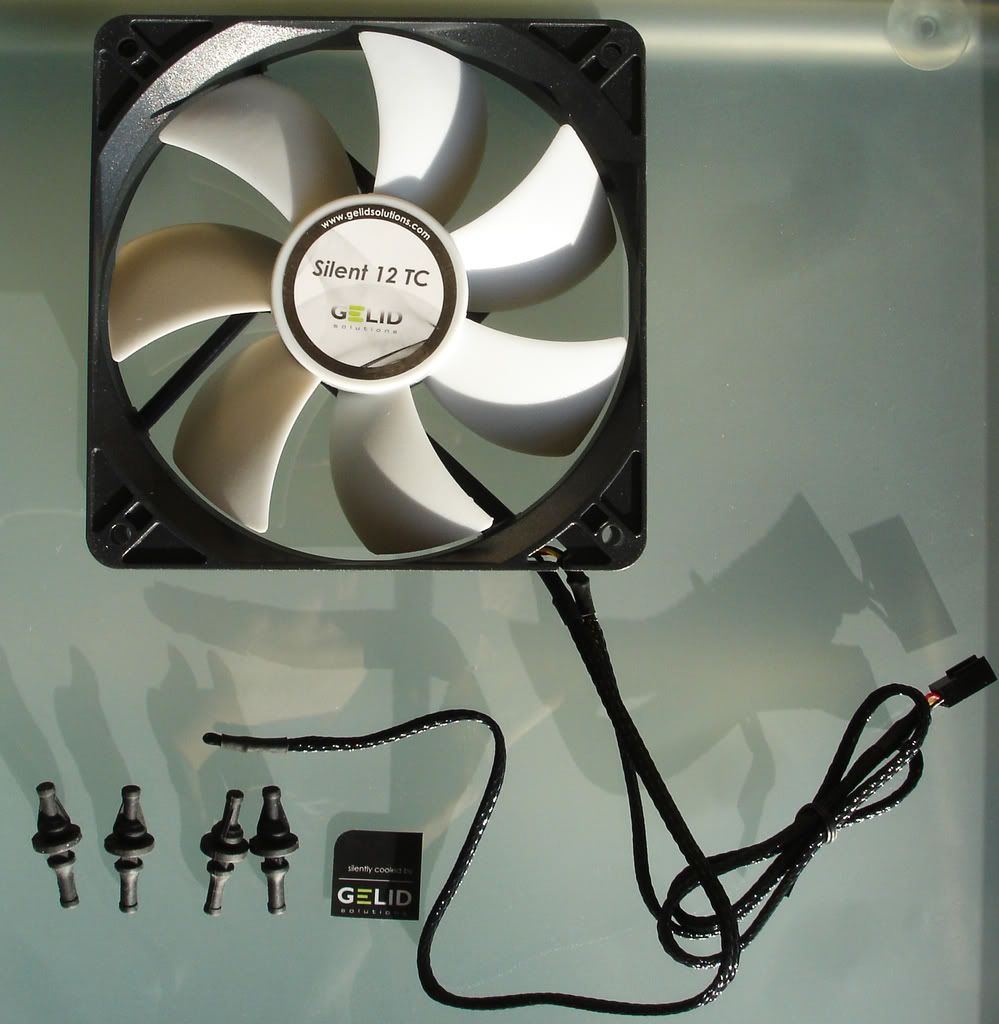
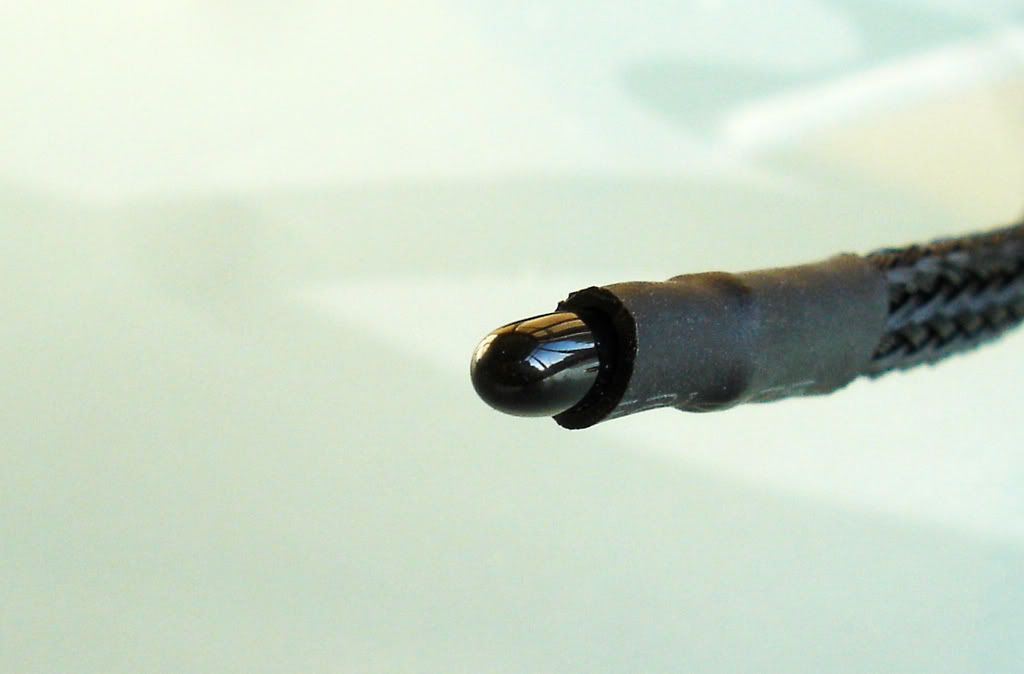
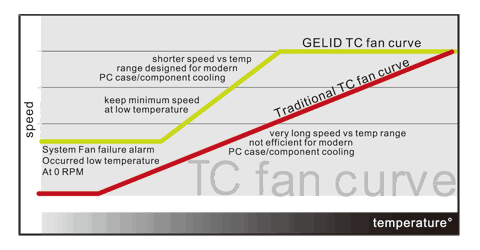
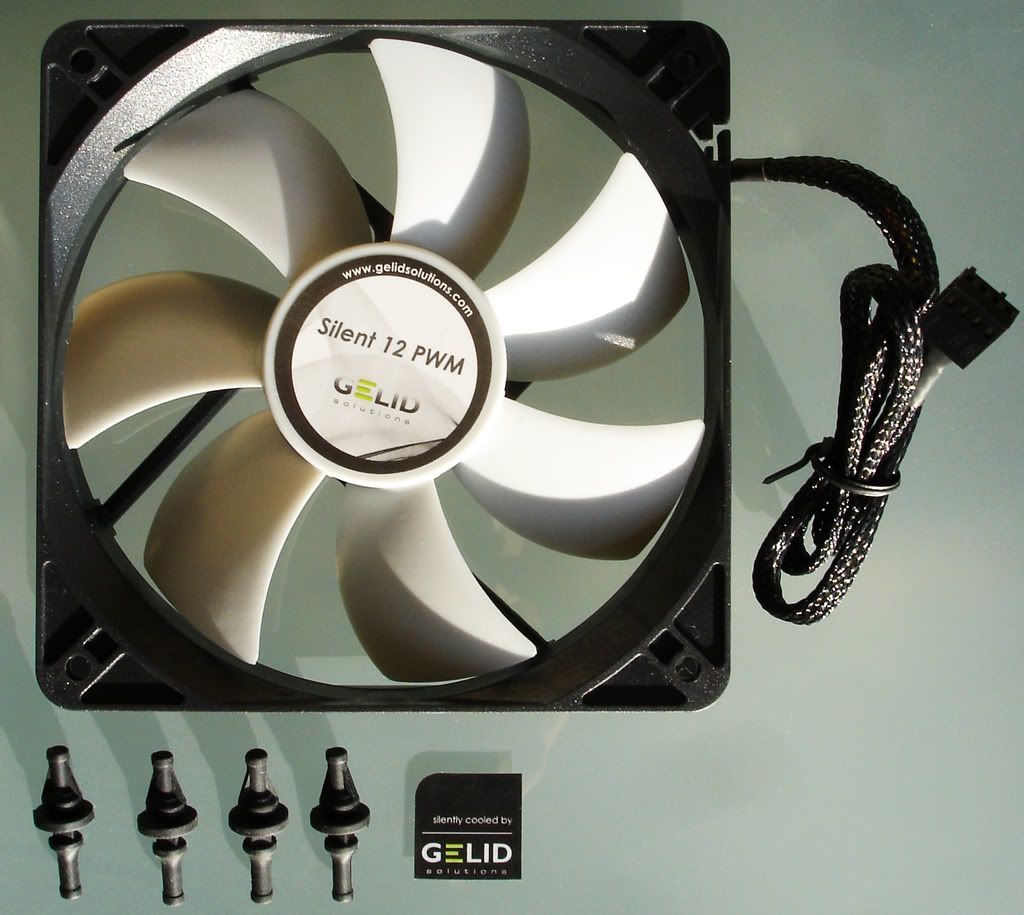
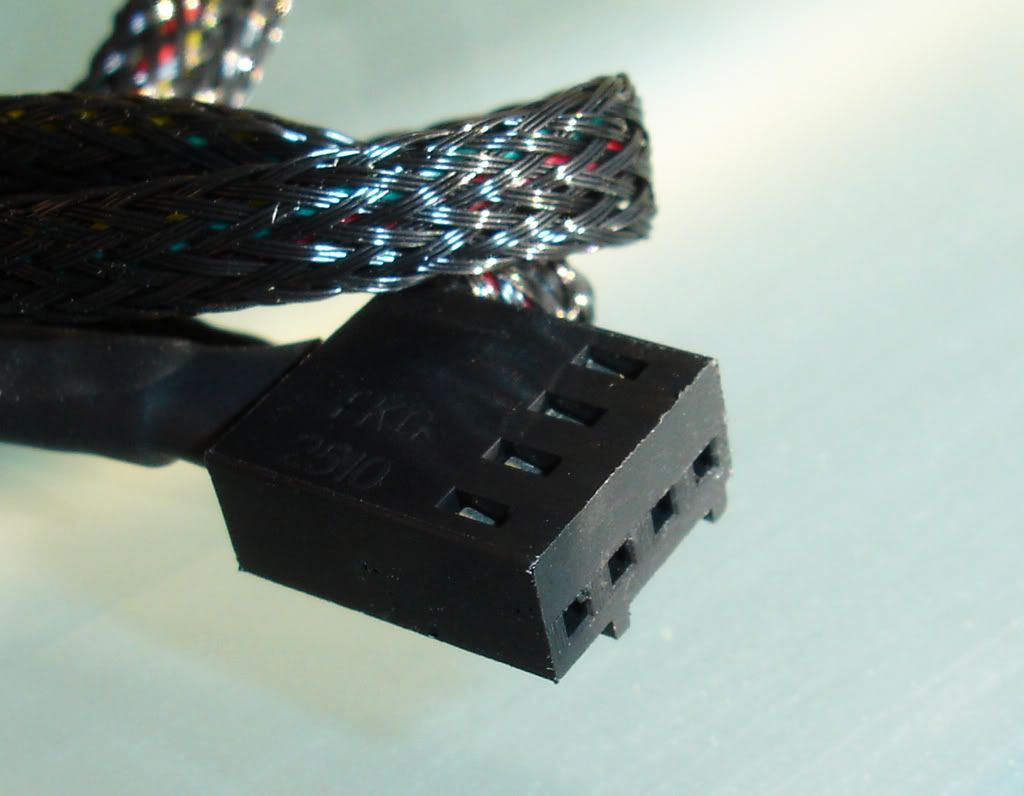
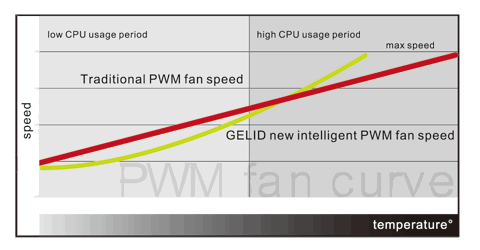
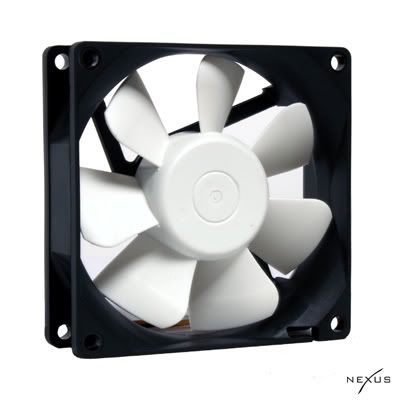
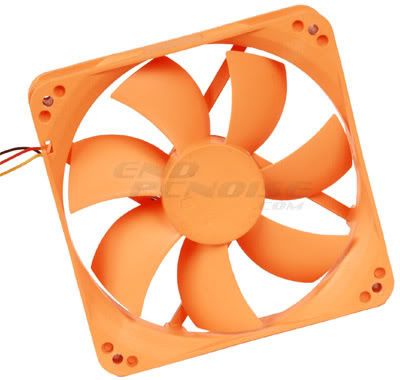
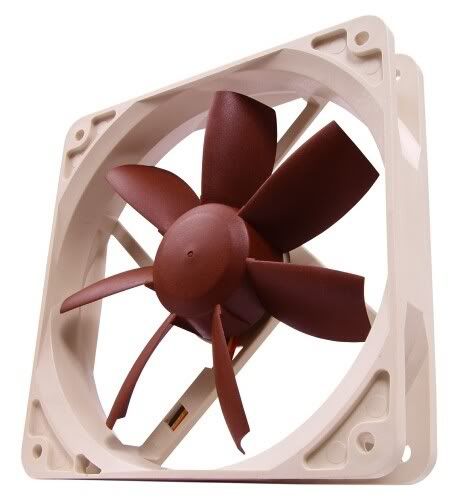
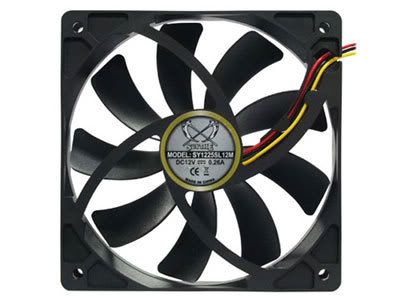

 Reply With Quote
Reply With Quote


Bookmarks